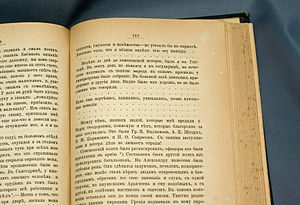Portal:Freedom of speech/Selected picture/18

Banned books are books to which free access is not permitted. The practice of banning books is a form of censorship, and often has political, religious or moral motivations. Bans on books can be enacted at the national or subnational level, and can carry legal penalties for their infraction. Books may also be challenged at a local, community level. As a result, books can be removed from schools or libraries, although these bans do not extend outside of that area. Similarly, religions may issue lists of banned books – a historical example being the Roman Catholic Church's Index Librorum Prohibitorum – which do not always carry legal force.
